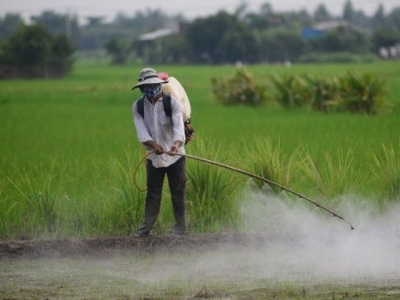World Bank offers advice on reducing agricultural pollution in Vietnam

Intensive farming is a major and often under-recognised source of pollution in Vietnam.
The World Bank has advised Vietnam to take action to address pollution in agriculture, warning that the problem could undermine the country’s success as an agricultural commodity export powerhouse.
The bank said in a new report that, over a 20-year period, Vietnam went from being a food-deficit country to being among the world’s largest exporters of rice, aquatic products, cashews and various beverages and industrial crops.
Agricultural output expansion has contributed to the plummeting rates of hunger in Vietnam, with the prevalence of food inadequacy falling by nearly 70 per cent since 1990.
But pollutions from farms has begun to tarnish the success story as intensive farming operations are a major and often under-recognised source of water, soil and air pollution in Vietnam.
According to the World Bank, surface water has degraded dramatically near intensively populated and farmed areas, while pesticides have been shown to affect groundwater extracted from wells and other drinking water sources.
In addition, manure and fertilisers were the fastest-growing sources of greenhouse gas emissions between 1994 and 2010.
With such evidence, the World Bank has outlined a range of technical and policy solutions that are available to address the pollution in agriculture.
It stated that priority should be given to improving the livestock industry’s waste management, reducing fertiliser losses that harm the environment, and minimising the use of toxic substances in pesticides, among others.
In Vietnam, the World Bank will help to scale up innovative aquaculture practices which increase shrimp yields, while reducing water pollution on approximately 100,000 hectares in the Mekong Delta over the next 5 years.
The country is also scaling up the adoption of biogas digesters in livestock operations and promoting the use of more sensible fertiliser and agro-chemicals among rice farmers in the Mekong Delta region.
Related news
 Electrical conductivity of water, part 2
Electrical conductivity of water, part 2 Electrical conductivity is frequently measured in aquaculture systems and taken as an indicator of the degree of mineralization (total ion concentration)
 Climate change: shrimp farming invades the Mekong in southern Vietnam
Climate change: shrimp farming invades the Mekong in southern Vietnam The rise in sea level is affecting rice fields, forcing farmers to switch from rice to shrimp!
 This approach not only binds CO2, but also improves the soil
This approach not only binds CO2, but also improves the soil Biochar technology makes it possible to capture CO2 from the atmosphere and store carbon in the soil. It also offers benefits to the agricultural sector